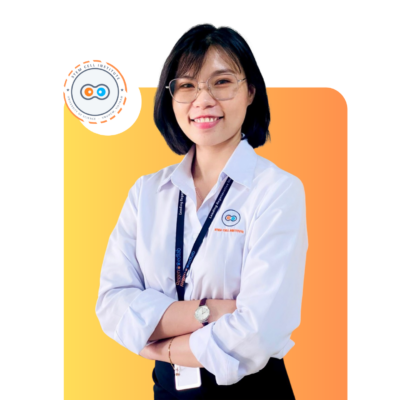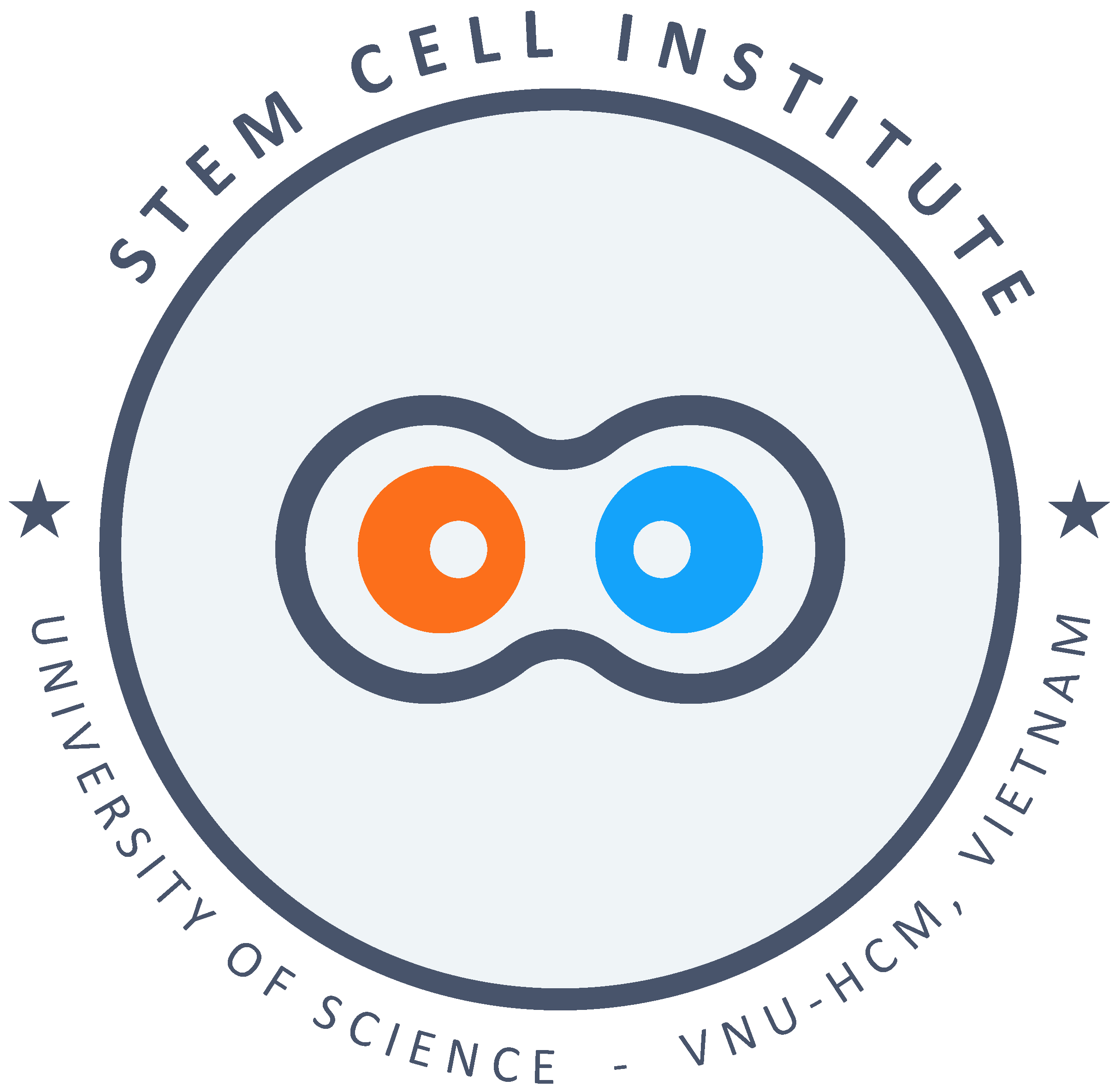
Tiến sĩ
TRẦN HỒNG THUẬN
Trưởng nhóm nghiên cứu Y học tái tạo thần kinh
Email: thuantran@sci.edu.vn
0896461778
Trần Hồng Thuận nhận được học bổng Thạc sĩ tại trường Y Ajou, Đại học Ajou, Hàn Quốc, và nghiên cứu theo định hướng khoa học thần kinh, sinh học phân tử trên mô hình Drosophila. Cuối năm 2019, Trần Hồng Thuận nhận được học bổng nghiên cứu sinh Tiến sĩ chất lượng cao (The Second Century Fund Chulalongkorn University), Đại học Chulalongkorn, Thái Lan. Nghiên cứu chính trong đề tài luận án Tiến sĩ của Bà theo hướng sử dụng tế bào gốc vạn năng cảm ứng để điều trị bệnh tiểu đường và các nghiên cứu khác liên quan đến tế bào gốc, cận lâm sàng. Tháng 9 năm 2022, Trần Hồng Thuận nhận được học bổng chất lượng cao (Conducting research abroad scholarship, C2F) của Đại học Chulalongkorn tại trường Nha, Đại học Tohoku, Nhật Bản. Tháng 4 năm 2023 đến nay, Bà Trần Hồng Thuận được giao nhiệm vụ làm trưởng nhóm nghiên cứu Y học tái tạo thần kinh với định hướng ứng dụng tế bào gốc trong điều trị rối loạn giấc ngủ và các bệnh thoái hoá thần kinh tại Viện Tế Bào Gốc, Đại học khoa học tự nhiên, Đại học Quốc gia Tp.Hồ Chí Minh, Việt Nam.
Tran Hong Thuan was received the 100% scholarship at School of Medicine, Ajou University, South of Korea, which interested in the neurosciences, molecular biology in Drosophila model. In 2019, Tran Hong Thuan was received the Merit scholarship with high-efficiency Ph.D. course (The Second Century Fund Chulalongkorn University), Chulalongkorn University, Thailand. In her studies, she has used the induced pluripotent stem cell-derived insulin-producing cells for diabetes treatment. Besides, she also did relevant studies such as bone, IL10-deficient mouse models. Then, in September 2022, Tran Hong Thuan was received the fund of Conducting research abroad scholarship in School of Dentistry, Tohoku University, Japan. From April 2023 to present, she is a team leader of Neural Regenerative Medicine. She interested in circadian rhythms, sleep-wake systems, and neurodegeneration treatment by stem cells, which is located at Stem Cell Institute, University of Sciences, Vietnam National University, Vietnam.
Kĩ năng
Quá trình công tác
04/2023 –present: a leader team of the Neural Regenerative Medicine at Stem Cell Institute, University of Sciences, Vietnam National University, Vietnam.
09/2022 – 02/2023 Short-term visitor at Tohoku University Graduate School of Dentistry, Japan
Center for Advanced Stem Cell and Regenerative Research,
Supervisor: Prof. Hiroshi Egusa, DSS, Ph.D., FRCPath
08/2019 – 09/2022 Chulalongkorn University, Thailand
Supervisor: Asst. Prof. Chenphop Sawangmake, Ph.D.
– Established and optimized the differentiation protocol for insulin-producing cells (IPCs) production from mouse gingival fibroblast-derived induced pluripotent stem cells (mGF-iPSCs)
– Set up the transplantation platform for delivering IPCs generated from mGF-iPSCs.
– Generation of precise T1D mouse model by injecting the Streptozotocin chemical
– Explored the anti-diabetic capacity of the encapsulated mouse miPS-IPCs in T1D
mouse model.
03/2016 – 02/2019 Ajou University School of Medicine, Korea Department of Biomedical Sciences, Department of Brain Sciences
Supervisor: Prof. Eun Young Kim, Ph.D.
– Generated mkrn1 and CG5808 null allele and examined the developmental progression.
– Screening the precocious puberty genes (GWAS).
06/2012 – 07/2013 Medicine and Pharmacy University, Ho Chi Minh City, Viet Nam Supervisor: Dr. Thai Khac Minh and Nguyen Thi Cam Vi
I found Aurone derivatives toward enzyme Acetylcholinesterase with high docking scores that are capacity for Alzheimer’s disease treatment.
Thành tích
– 09/2022-02/2023 Grantee of Visitor at Tohoku University Graduate School of Dentistry, Tohoku University, Sendai, Japan.
– 2019-2022 Merit Second Century Fund (C2F) Ph.D. Scholarship, 100% scholarship, and accommodation, Chulalongkorn University
– 11-2021 IACUC certificate, protocol number 2173018, Chulalongkorn University Laboratory Animal Center
– 02-2020 IACUC certificate, protocol number 1973029, Chulalongkorn University Laboratory Animal Center
– 09-2020 Virtual student exchange certificate via APRU program at Osaka University, Japan
– 2016-2019 Ajou University 100% Scholarship, Suwon, Korea
– 04-2018 Oral presentation; Roles of MKRN3 homolog genes in pupariation timing
in Drosophila, Pyeongchang, Korea
– 08-2017 Attendee at the Korean Society for Brain and Neural Science Conference,
Seoul, Korea
– 06-2017 Attendee in 2nd Asian Chronobiology Forum, Hohhot, China
– 04-2017 Poster presentation; Peptidyl-prolyl isomerase CG5808 is required for
Drosophila circadian clock, Pyeongchang, Korea
– 10-2016 Attendee in Korean Society of Molecular and Cellular Biology
Conference, Seoul, Korea
– 04-2014 Elite Engineer certification from University President, Ton Duc Thang
University
– 04-2014 Scientific research certification, Ton Duc Thang University
Lĩnh vực hoạt động
- Chu kỳ ngủ thức bị thay đổi, giấc ngủ bị ngắt quãng, điều kiện ngủ không thích hợp…, sẽ tác động tiêu cực và trực tiếp đến vùng não, tế bào thần kinh quy định giấc ngủ, kéo theo nhiều bệnh lý liên quan đến thoái thần kinh. Hiện nay, liệu pháp tế bào gốc là phương pháp hứa hẹn, có tính khả thi cao nhằm phục hồi chức năng, bảo vệ, tái tạo và kéo dài sự sống cho tế bào thần kinh, mô não bị tổn thương do rối loạn giấc ngủ gây ra. Vì thế, nhóm nghiên cứu của chúng tôi (nhóm NRM) đang đánh giá mô hình rối loạn giấc ngủ theo chu kỳ sáng tối trên tế bào gốc, đây là phương pháp phát hiện các gene tín hiệu quy định giấc ngủ, rối loạn giấc ngủ, các gene quy định chu kỳ sáng tối, và sự tương tác, mối liên quan giữa chúng. Bên cạnh, việc kiểm soát chu kỳ ngủ thức theo chu kỳ sáng tối trên tế bào gốc cho phép tối ưu thời gian, liều lượng, nâng cao hiệu quả trong nghiên cứu cận lâm sàng và điều trị lâm sàng
Công trình nghiên cứu
1. So Who Kang, Hong Thuan Tran, and Eun Young Kim. 2024. Drosophila Peptidyl-Prolyl cis/trans Isomerase-like 4 regulates circadian rhythm by supporting High-Amplitude Oscillations of PERIOD”. Journal of Neuroscience. JN-RM-2290-23. In Revision.
2. Tran, Hong Thuan et al. 2024. Screening sixty-five potential downstream targets of Src64B in actomyosin ring contraction during Drosophila cellularization. All Life. In Revision.
3. Tran, Hong Thuan et al. “Detection of Novel Genes on Recessive Heterozygous
Alleles in Pig Breeding: A Review.” Indian Journal of Animal Research (2022): n.
pag.
4. Adretta Soedarmanto, Watchareewan Rodprasert, Hong Thuan Tran,
Nabila Syarifah Jamilah, Le D Quynh, Steven Dwi Purbantoro, Choopet Nitsakulthong, Anusak Kijtawornrat, Pichit Suvanprakorn, Chenphop Sawangmake. 2021. Modification of the isolation protocol for retrieving small-sized islets of Langerhans. Thai J Vet Med. 51(Suppl.): O10-012.
5. Hong Thuan Tran, Eunjoo Cho, Seongsu Jeong, Eui Beom Jeong, Hae Sang Lee, Jin Soon Hwang, Seon Yong Jeong, Eun Young Kim. 2018. Makorin 1 regulates developmental timing in Drosophila. Mol.Cells. 41(12): 1024–1032.
